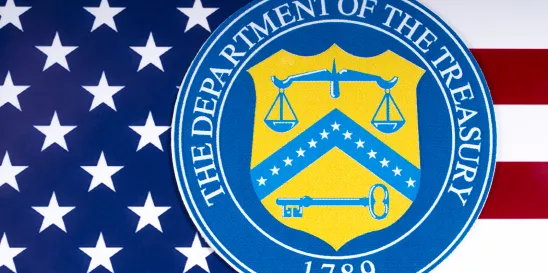For the first time, on 12 October 2023, the US Department of the Treasury’s Office of Foreign Assets Control (OFAC) imposed sanctions on vessels and their owners for breaching the price cap on seaborne Russian crude oil established by the “Price Cap Coalition,” consisting of the G7, EU, and Australia (the Coalition). Specifically, OFAC designated two tank vessels and their registered owners on the Specially Designated Nationals and Blocked Persons List (SDN List) after the vessels utilized US-based services while carrying Russian crude oil, sold above the US$60 per barrel cap. In conjunction with these sanctions, OFAC published an “Advisory for the Maritime Oil Industry and Related Sectors,“ which outlines best practices for compliance with the price cap and for preventing and disrupting sanctioned trade.
VESSEL DESIGNATIONS
OFAC’s designation of vessels and owners on the SDN List sends a strong signal to the shipping sector that the US government is monitoring exports from Russia’s eastern and western ports and will enforce the price cap using the considerable tools at its disposal. In this case, OFAC utilized its authority under the 31 March 2022 Determination Pursuant to Section l(a)(i) of Executive Order 14024, which broadly authorizes OFAC to block any person who has operated in the “marine sector of the Russian Federation economy.”
In the future, OFAC is likely to rely on the 31 March Determination to impose blocking sanctions on other non-US parties for price cap breaches. However, with regard to US persons who facilitate price cap breaches, OFAC is likely to act pursuant to a 22 November 2022 Determination, which prohibits US persons from providing “Covered Services” for maritime shipments of Russian petroleum products sold above the price cap. Covered services include financing, shipping, insurance, flagging, and customs brokering.
The designated vessels and registered owners are now “blocked,” meaning their property and property interests are frozen within US jurisdiction or in the possession of US persons located anywhere. In addition to asset freezes, such blocking sanctions often lead to vessels losing their flag, insurance, classification, and ability to transact with many charterers, suppliers, and port authorities.
It is unclear to what extent the owners and operators of the sanctioned vessels had access to price information for the Russian shipments at issue. Under the OFAC Guidance on Implementation of the Price Cap Policy, vessel owners are considered “Tier 3” actors who generally do not have access to price information and, therefore, are entitled to rely on price cap “attestations” to gain a “safe harbor” from OFAC enforcement.
THE ADVISORY
In conjunction with the SDN designations of 12 October OFAC published the Coalition’s Advisory for the Maritime Oil Industry and Related Sectors. The Advisory recommends specific best practices for industry stakeholders to reduce risk and enhance compliance with the price cap. In particular, the Advisory provides the following seven recommendations for detecting and addressing deceptive and illicit practices designed to evade the price cap and other sanctions.
Insurance
Ensure vessels have appropriately capitalized P&I insurance. Because insurance from Coalition countries is prohibited for shipments above the price cap, many vessels in the so-called “shadow fleet” evading the price cap rely on unknown, untested, or fraudulent insurance carriers. Therefore, if a vessel does not have legitimate insurance providers, this is a “red flag” that requires further due diligence.
Classification
Ensure vessels receive classification from an International Association of Classification (IACS) member. Many vessels engaged in evasive practices use classification societies that are not IACS members. Indeed, many are older tankers that may not meet the standards of IACS members. As with insurance, reliance on questionable classification is a red flag that requires due diligence.
Automatic Identification Systems (AIS)
Ensure vessels use AIS in accordance with the International Convention for Safety of Life at Sea. AIS should be broadcast continuously. A failure to do so, in the absence of certain types of emergencies, is indicative of illicit trading.
Ship-to-Ship (STS) Transfers
Monitor high-risk STS transfers that may have been conducted to conceal the origin or destination of cargo in circumvention of sanctions. Pay special attention to STS transfers in areas at higher risk for illicit trading activity or AIS manipulation.
Review Costs
Request and review shipping and ancillary costs. Deliberate inflation of shipping and ancillary costs (e.g., freight, customs, insurance), or the bundling of such costs, are tactics that may be used to conceal that Russian oil was purchased above the price cap. The billing of commercially unreasonable or vague shipping and ancillary costs is a red flag. Shipping, freight, customs, and insurance costs are not included in the price caps and must be invoiced separately and at commercially reasonable rates. Industry stakeholders involved in the Russian oil trade that use “Cost, Insurance, Freight” contracts or whose counterparts use such agreements should require an itemized breakdown of all costs to determine the price paid for oil or petroleum products. This may require that industry stakeholders update contractual terms and conditions with sellers or counterparts or adjust invoicing models to show the price of the oil and the price for transportation and other services separately.
Party and Vessel Due Diligence
Conduct appropriate due diligence on vessels and all parties involved in a shipment. This includes intermediary companies (e.g., management companies, traders, brokerages) that sometimes conceal their beneficial ownership or engage in unusually opaque practices. Such companies may be more likely to engage in deceptive practices and expose counterparties to heightened risks.
Reporting
Report vessels and parties suspected of breaching the price cap to relevant authorities.
CONCLUSION
Future designations to the SDN List are likely to follow these first sanctions for breaches of the price cap policy.






 />i
/>i

